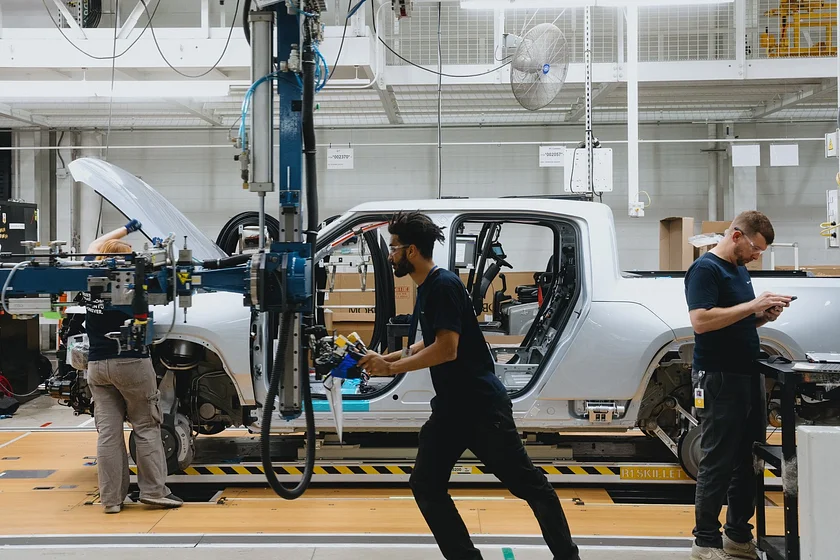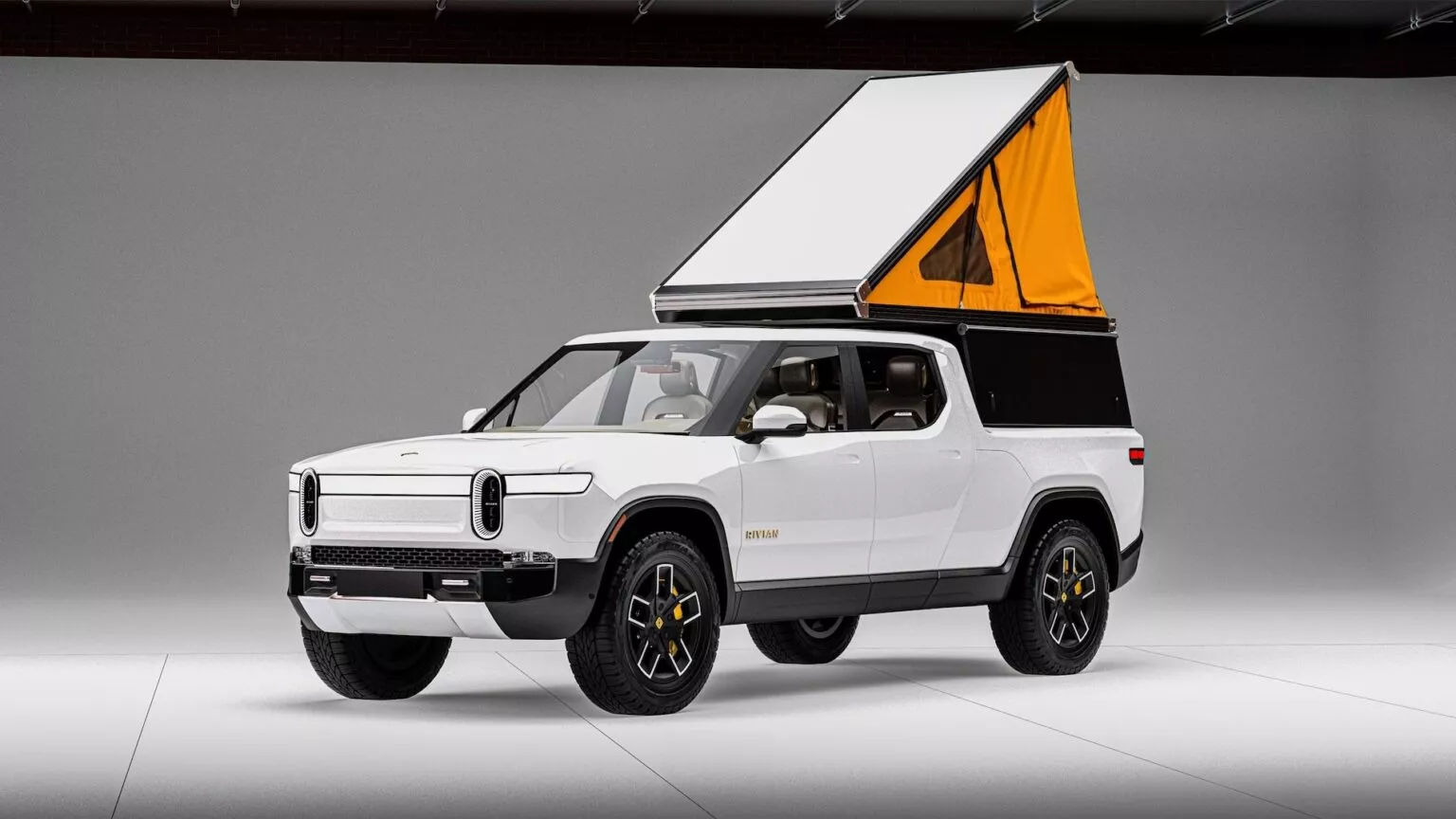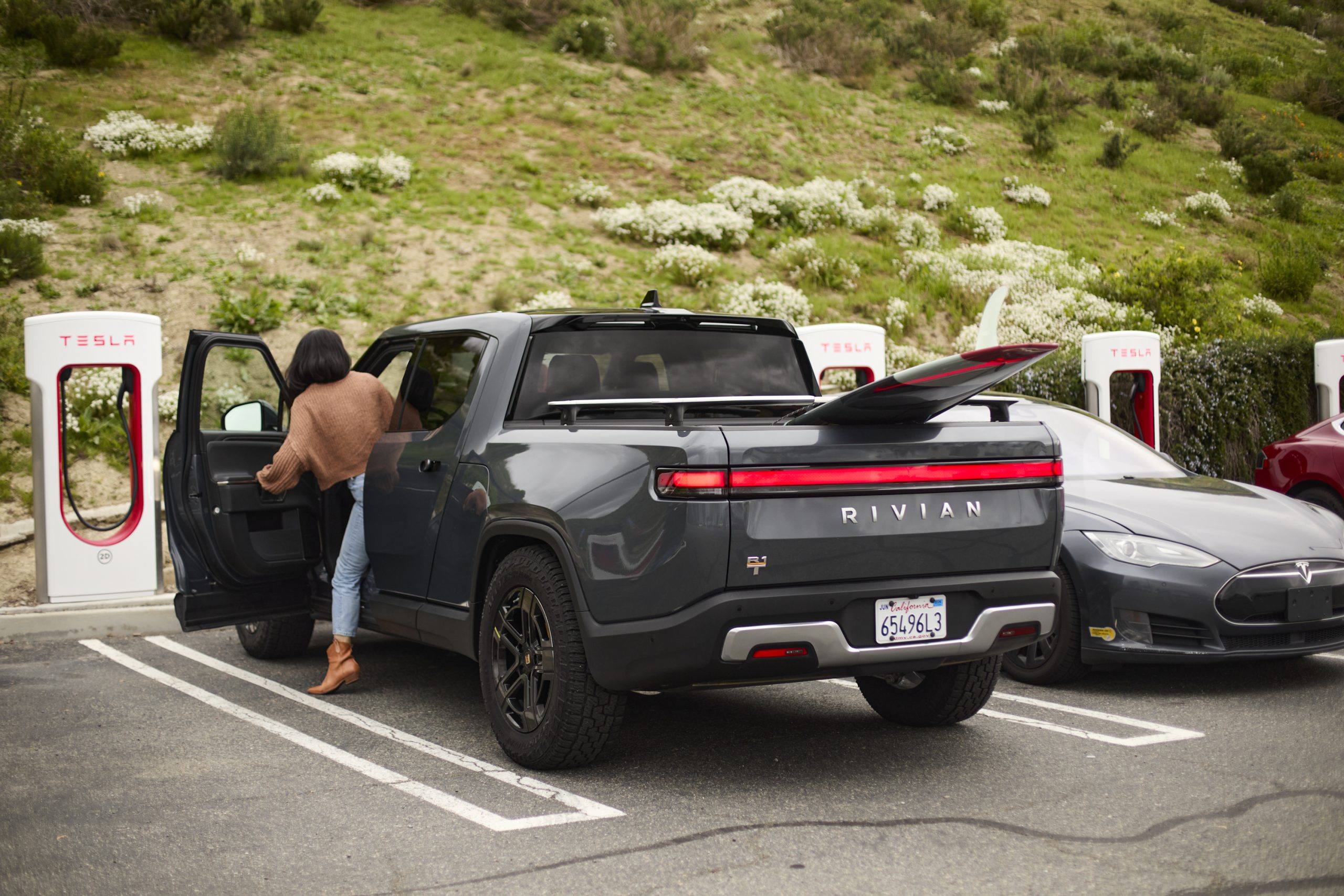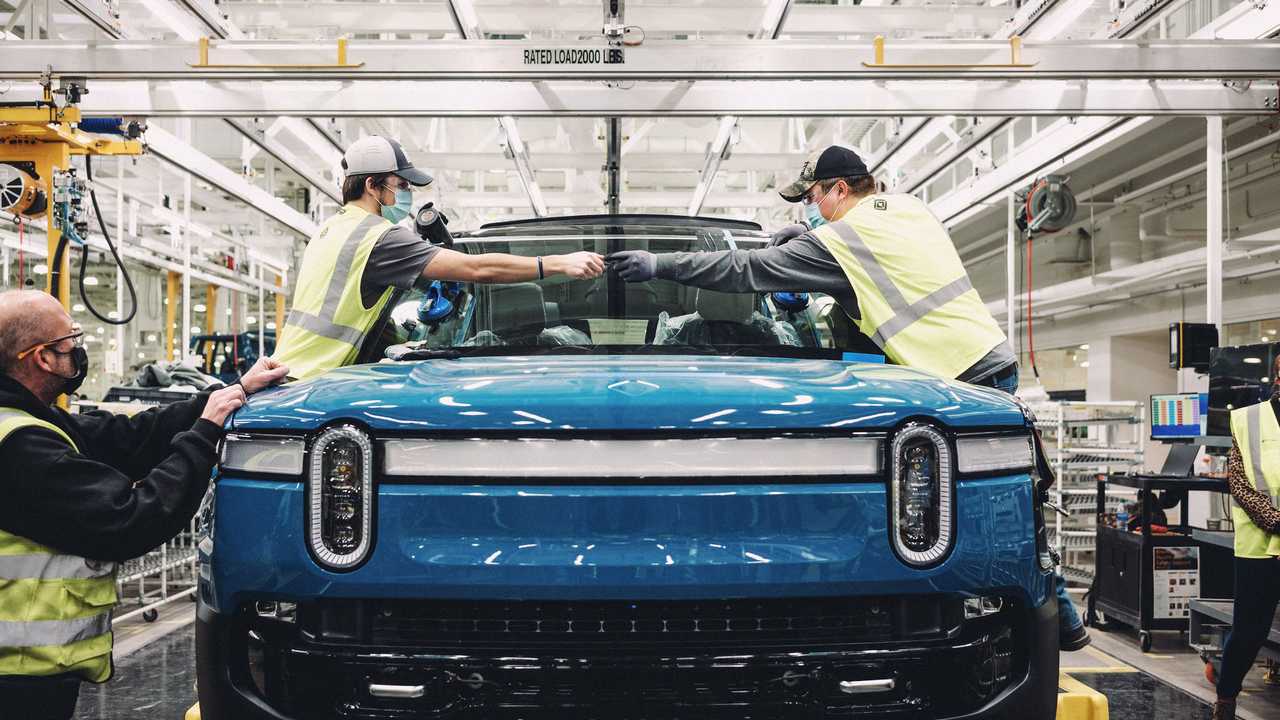Rivian marked a major milestone with the production of its 100,000th EV, CEO RJ Scaringe announced on Wednesday. This milestone comes nearly three and a half years after the company’s first model rolled off the production line.
Rivian, known for its “Electric Adventure Vehicles,” including the all-electric R1T pickup and R1S SUV, has been expanding its brand presence. The R1T made history as the first electric pickup to hit the US market in September 2021, followed by the introduction of the R1S, an electric SUV with seating for seven, with customer deliveries beginning in August 2022.
Our 100,000th Rivian! pic.twitter.com/7ZKwCASQBR
— RJ Scaringe (@RJScaringe) April 3, 2024
As part of its growth strategy, Rivian is implementing upgrades at its Normal, IL plant to introduce new technologies and manufacturing practices aimed at reducing costs. These upgrades, announced last November, are expected to significantly decrease material costs by the end of 2024, leading to a projected “modest growth profit.”
Despite the optimistic outlook, Rivian anticipates flat deliveries this year, around 57,000 vehicles, due to the production shutdown for upgrades. However, the company exceeded expectations in Q1, delivering 13,588 vehicles, slightly down from the previous quarter.
Rivian’s push for profitability is evident, with a substantial decrease in losses per vehicle. While the company still faces a loss of approximately $43,372 per vehicle in Q4, this marks a significant improvement from the $124,162 loss per vehicle in Q4 2022.
Looking ahead, Rivian aims to capture new markets with its recently unveiled R2, a smaller and more affordable EV with prices starting around $45,000. The R2 has already garnered over 68,000 reservations within 24 hours of its reveal, indicating strong demand for affordable EVs.
However, Rivian’s stock has faced challenges, trading near all-time low prices as startups contend with higher interest rates. Despite this, the company remains focused on expanding its brand and offering innovative EVs to meet the growing demand for sustainable transportation solutions.






